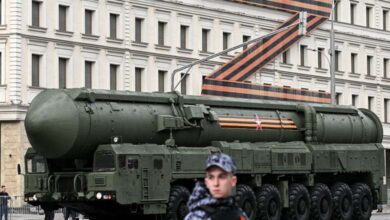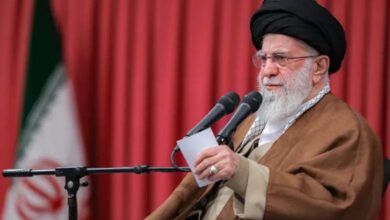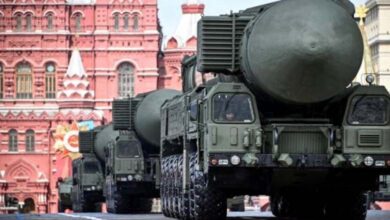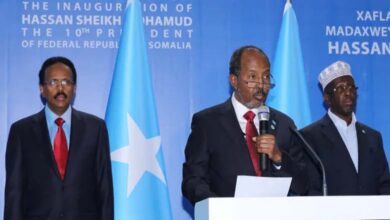Lebanon Accuses Israel to the Security Council Over Navigation Systems Interference
The Lebanese government warns that reckless interference poses a threat to air navigation safety at Beirut Airport and the lives of thousands of civilian passengers

On Friday, the Lebanese Ministry of Foreign Affairs instructed its permanent mission to the United Nations in New York to lodge an urgent complaint with the Security Council against Israel for its disruption of navigation and aviation systems at the Rafic Hariri International Airport in Beirut, posing a threat to air navigation safety amid ongoing fighting on the border between the Israeli army and Hezbollah.
The Foreign Ministry, in a statement, stated that it had “instructed the permanent mission of Lebanon to the United Nations in New York to file an urgent complaint with the Security Council regarding Israel’s attacks on Lebanese sovereignty by disrupting navigation systems and civil aviation safety in the airspace of Rafic Hariri International Airport since the beginning of the war in Gaza.” This action came following a proposal from the Ministry of Public Works and Transport and a request from the Council of Ministers.
The Lebanese Foreign Ministry condemned “these Israeli acts characterized by reckless behavior and indifference to their serious consequences on civil aviation safety, as well as the lives of thousands of civilian passengers daily.”
It considered the ongoing situation “a blatant violation of laws and regulations sponsored by the International Civil Aviation Organization and the International Air Transport Association, as well as the International Civil Aviation Convention signed in Chicago in 1944, in addition to international humanitarian law,” stating that “the complaint complements the campaign to document Israeli violations and infringements and follows a series of previous complaints.”
On Tuesday, Lebanese Minister of Public Works and Transport Ali Hamieh revealed during a government meeting that there was “interference in the airspace of Beirut Airport,” warning of “the danger it poses to all local and international airlines.”
While the objectives of this interference are not clear, Lebanese observers suggest that it targets all Lebanese airspace to control it and disrupt its operations, but the greatest danger lies with the airport.
Hezbollah has recently carried out drone attacks targeting military bases on the border and in the occupied Golan Heights, while Israel has responded by bombing towns in the south and the Bekaa amid international pressure to stop the fighting. Lebanese Prime Minister Najib Mikati described Friday in a statement the results of the diplomatic contacts he is conducting internationally and regionally to stop the Israeli “aggression” against Lebanon so far as “positive.”
In front of his visitors at his home in Tripoli, northern Lebanon, Mikati reiterated his assertion that the government “continues its diplomatic contacts internationally and regionally to stop the Israeli aggression against Lebanon,” adding that “the results of these contacts so far seem positive, without ignoring a fundamental issue, which is that no positive position or guarantee can be relied upon from the Israeli enemy.”
He said that his government, “since the first day of the Israeli aggression, formed an emergency committee to monitor the situation in southern Lebanon and the Southerners, and continues to provide necessary assistance to the displaced from their villages, within available capabilities.”
He added, “In parallel, it is following the necessary steps to address the consequences of the Israeli aggression diplomatically and internationally, especially through the United Nations and its organizations.”
International parties, including the United States and France, are conducting diplomacy aimed at containing the escalation on the southern front of Lebanon, following nearly 6 months of mutual clashes between Hezbollah and Israel, following Israel’s war on the Gaza Strip.
On March 15, Lebanon delivered its official response to France on Paris’s initiative aimed at ending the fighting with Israel and reaching a settlement on the disputed borders with Lebanon, calling on Hezbollah fighters to withdraw 10 kilometers from the border, according to international reports.
Meanwhile, US presidential envoy for energy affairs Amos Hochstein held talks with Israeli and Lebanese officials during repeated visits to both Tel Aviv and Beirut over the past months to discuss a ceasefire on the southern border.
In “solidarity with Gaza,” which has been undergoing a devastating Israeli war since October 7, 2023, supported by the United States, Hezbollah and Palestinian factions in Lebanon have exchanged fire with the Israeli army since the 8th of that month, resulting in casualties on both sides of the “blue line,” most of them in Lebanon.
The ongoing Israeli war in Gaza has resulted in tens of thousands of civilian casualties, most of them children and women, as well as a famine that has claimed the lives of children and the elderly, according to Palestinian and UN data, leading to Israel being brought before the International Court of Justice on charges of committing “genocide.”












